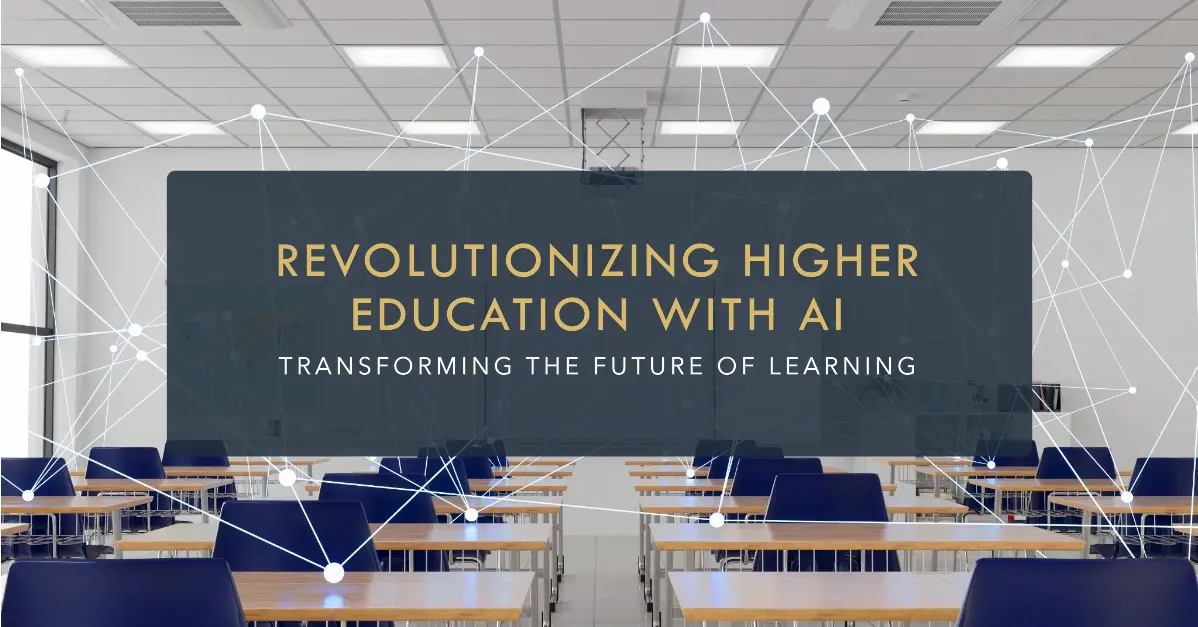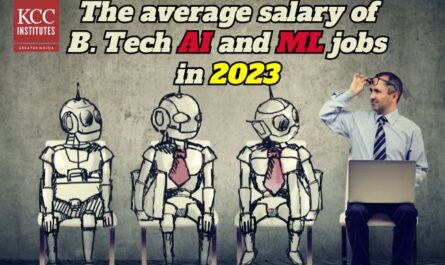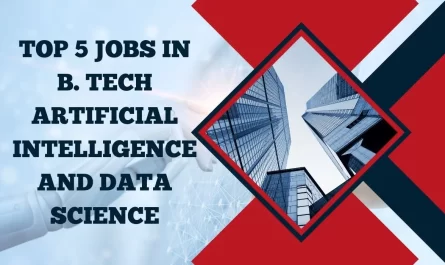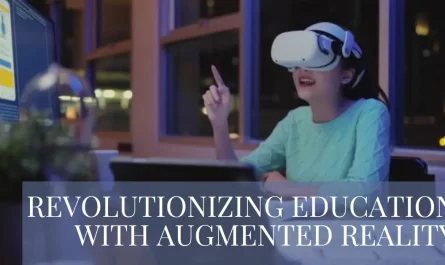Introduction
Integrating Artificial Intelligence (AI) into higher education will change learning experiences, improve teaching methods, and make administrative processes smoother. The capabilities of AI to handle large amounts of data, offer personalized learning pathways, and take care of important tasks have the potential to transform higher education for the better. Personalized learning is one of the most significant ways AI can transform higher education.
By using AI algorithms, teachers can customize instruction to fit individual student’s unique needs and learning styles. AI-powered adaptive online educational platforms take into account students’ strengths, weaknesses as well as preferences when giving instructions.
In this regard, AI algorithms may notice an area where a student is struggling with a concept and provide targeted resources or extra practice exercises that could assist them in mastering difficult topics.
Role of AI in education –
Furthermore, AI can play a vital role in improving teaching methods and pedagogical practices. For example, natural language processing (NLP) algorithms could be utilized for analyzing textbooks, instructional materials, and scholarly articles thereby enabling educators to discover emerging trends in course materials, areas where knowledge gaps exist, or need for curriculum improvement.
This information would assist instructors in developing more effective teaching approaches while constructing learning materials that resonate with students’ preferences. Moreover, AI-driven virtual assistants can provide real-time assistance to both students and faculty members. These assistants are capable of answering questions, giving advice on coursework, and suggesting more personalized ways for further studies.
As a result, learners will have more meaningful interactions with their teachers while educators will not be engaged in monotonous work but will focus on those things that add value to the education process itself. Another area where AI can revolutionize higher education is administration. AI-powered systems can automate everyday administrative tasks such as admissions procedures, enrollment processes, or courses. Moreover, the use of AI algorithms allows for the analysis of wide-ranging information that can be used in informing strategic decisions by higher learning institutions. Universities can predict future students’ wants using predictive analytics and identify those who may necessitate extra support and enhance resource management for better student performance.
Additionally, artificial intelligence could help to overcome barriers such as language and disability which prevent easy access to education. AI-based language translation tools can translate educational content into several languages thus making learning more open to non-native speakers. Similarly, assistive technologies driven by AI help students with impairments through capabilities like text-to-speech and speech-to-text so that they can get involved fully in their studies.
Advantages of AI in education –
However, the huge potential advantages of utilizing AI in higher education should not conceal real challenges and ethical concerns that need attention. These include worries about data privacy, bias in algorithms as well as automation effects on jobs within the educational sector. This makes it crucial to establish strong data governance frameworks, have transparency when using algorithms for decision-making, and put human supervision first to minimize these threats.
In the current market trends there are most of job profiles are under pressure. AI can use in almost all the job role positioning including SEO – Search Engine Optimization. WIth SEO Training Course Online you can learn how to deal with AI and how AI can helpful to make this work more faster way.
The combination of AI has the potential to transform higher education by personalizing studying experiences, improving teaching methodologies, streamlining administrative approaches, and improving access to schooling. Higher education institutions can better meet the desires of diverse beginners, foster innovation in coaching and studying, and put college students together for success in the digital age.
However, it’s far vital to technique the adoption of AI in better schooling thoughtfully, addressing moral issues and ensuring that technology serves to decorate, in place of update, human interplay, and knowledge. Furthermore, AI can revolutionize research inside better education establishments. AI-powered gear can analyze huge amounts of educational literature, become aware of connections among study articles, and generate hypotheses, rushing up the study procedure and facilitating interdisciplinary collaboration.
Additionally, Artificial Intelligence (AI) based educational platforms might enable lifelong learning by constantly adjusting the content to the learner’s growth of knowledge and skills. In this way, it promotes active student involvement and enhances their understanding of the subject matter as each student is taken through the material at his/her own pace.
Conclusion
Machine learning algorithms can also assist researchers in statistics analysis, supporting them in uncovering insights and styles that could have been overlooked by the use of traditional techniques. Moreover, AI can decorate the fine of checks and critiques in higher schooling. Intelligent tutoring structures can provide immediate comments on assignments and exams, permitting students to perceive regions for development and tune their development over time.



